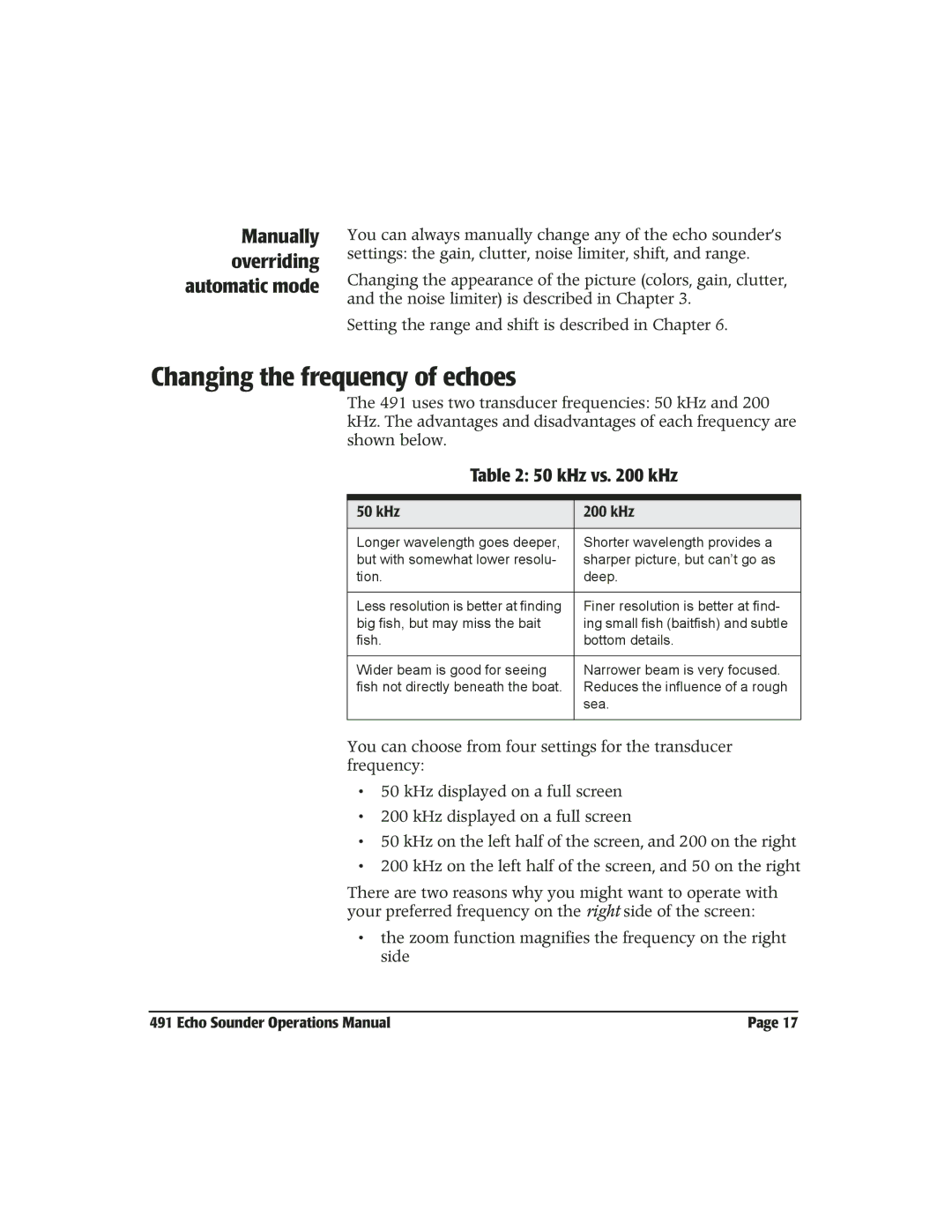Manually overriding automatic mode
You can always manually change any of the echo sounder’s settings: the gain, clutter, noise limiter, shift, and range.
Changing the appearance of the picture (colors, gain, clutter, and the noise limiter) is described in Chapter 3.
Setting the range and shift is described in Chapter 6.
Changing the frequency of echoes
The 491 uses two transducer frequencies: 50 kHz and 200 kHz. The advantages and disadvantages of each frequency are shown below.
Table 2: 50 kHz vs. 200 kHz
50 kHz | 200 kHz |
|
|
Longer wavelength goes deeper, | Shorter wavelength provides a |
but with somewhat lower resolu- | sharper picture, but can’t go as |
tion. | deep. |
|
|
Less resolution is better at finding | Finer resolution is better at find- |
big fish, but may miss the bait | ing small fish (baitfish) and subtle |
fish. | bottom details. |
|
|
Wider beam is good for seeing | Narrower beam is very focused. |
fish not directly beneath the boat. | Reduces the influence of a rough |
| sea. |
|
|
You can choose from four settings for the transducer frequency:
•50 kHz displayed on a full screen
•200 kHz displayed on a full screen
•50 kHz on the left half of the screen, and 200 on the right
•200 kHz on the left half of the screen, and 50 on the right
There are two reasons why you might want to operate with your preferred frequency on the right side of the screen:
•the zoom function magnifies the frequency on the right side
491 Echo Sounder Operations Manual | Page 17 |
